Since our first class graduated in 1966, our history has reflected the evolution of British Columbia’s economy. Our institution has always been on the cutting edge of technology, and we’re proud of our contribution to shaping the province’s workforce.
For more than 50 years, we’ve been filling the needs of industry, and training future leaders and changemakers across a diverse range of sectors—and our work, like theirs, is never done.
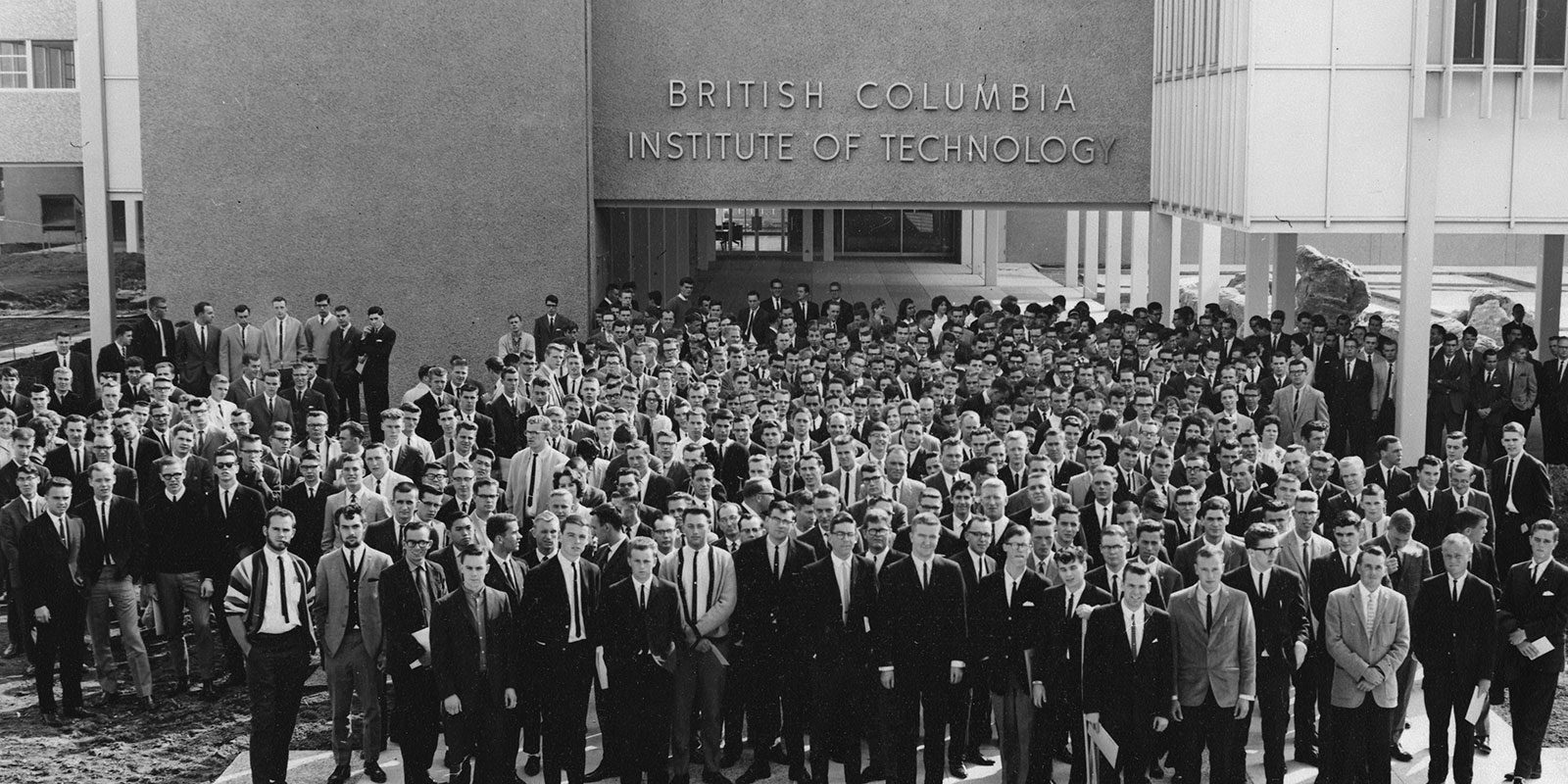
| 1960 | BCIT’s predecessor, the BC Vocational School, opens in Burnaby. |
| 1964 | The BCIT Burnaby Campus officially opens. (Photo) |
| 1964 | We welcome students for our first official day of classes, with nearly 500 students, studying Engineering, Health and Business. (Photo) |
| 1966 | Students establish the Student Association, which improves the campus experience with social and recreation activities. |
| 1966 | We celebrate our first graduating class. (Photo) |
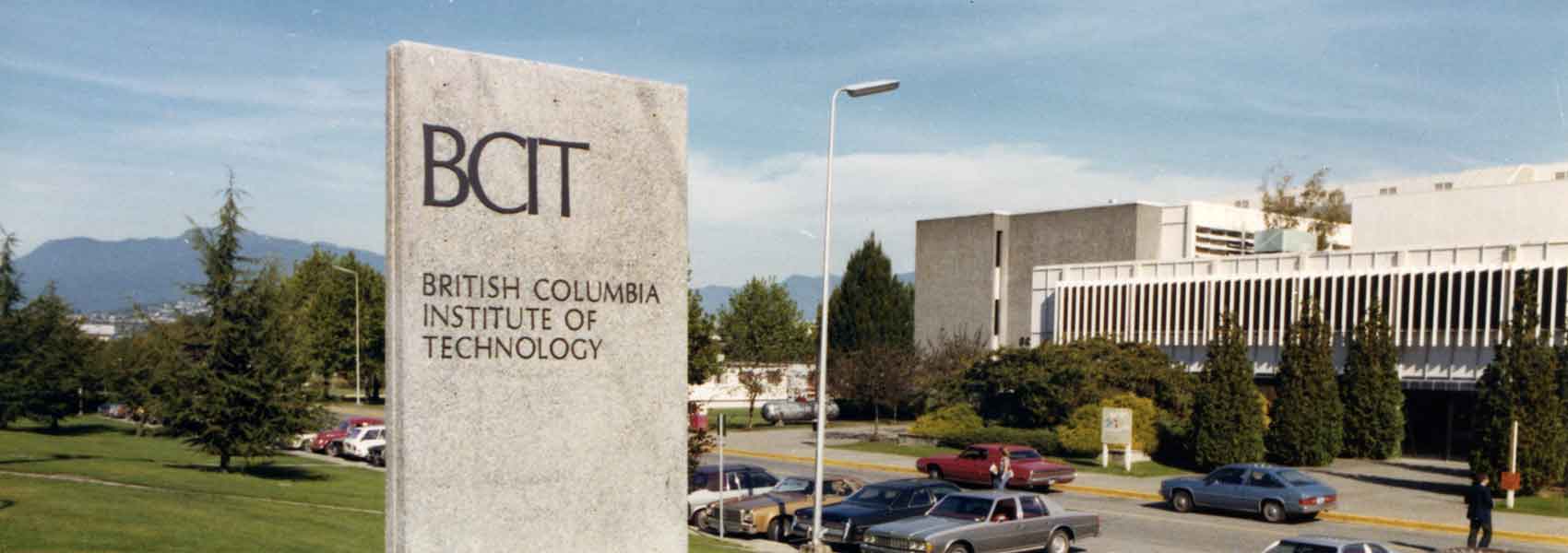
| 1977 | BCIT expands, opening the Sea Island campus to offer courses in aircraft maintenance. (Photo) |
| 1978 | The Maquinna student residences officially open, further contributing to the thriving BCIT campus. (Photo) |
| 1969/1970 | Our Alumni Association is established to serve the needs of our ever-expanding network of graduates. (Photo) |
| 1985/1986 | We merge with the Pacific Vocational Institute, consolidating our educational offerings. (Photo) |
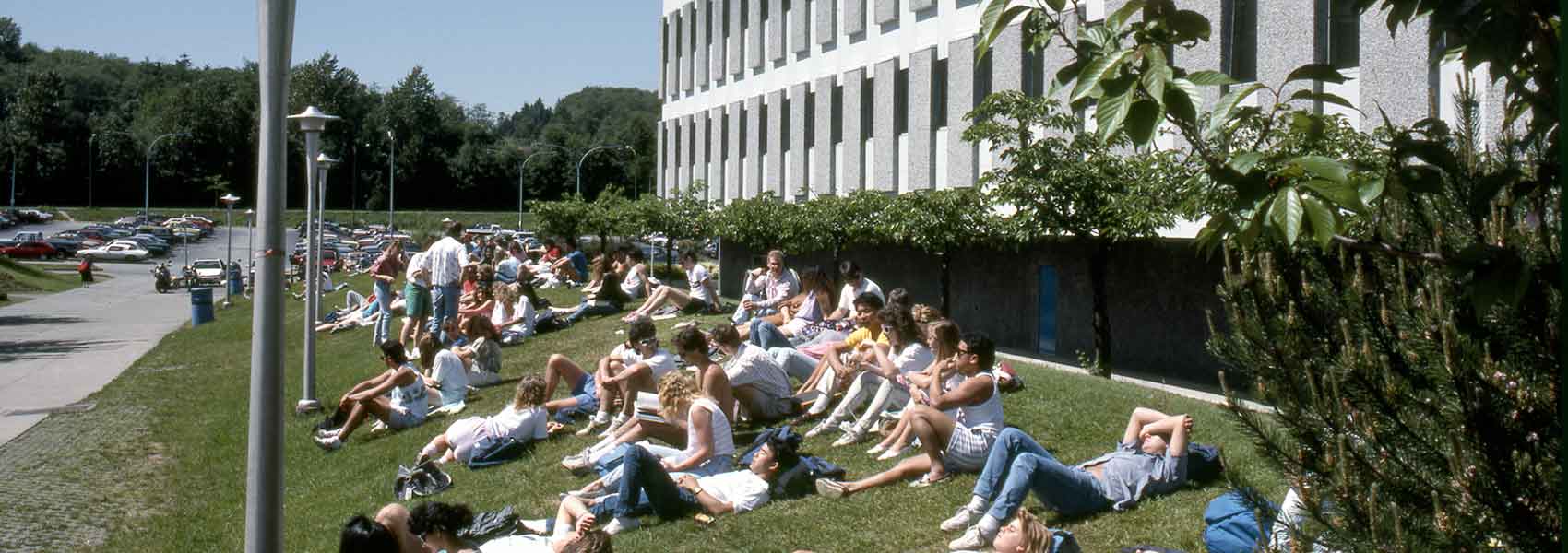
| 1989 | We broaden our mandate to include applied research, and establish our Technology Center to support this new direction. (Photo) |
| 1992 | We open our new Downtown campus in the heart of Vancouver, near the Granville Skytrain station. The new location offers business courses and certificate programs. In 1997 we moved into our current downtown campus on Seymour Street. (Photo) |
| 1996 | We expand our educational offerings with our first Bachelor of Technology degree in Environmental Engineering and Technology. |
| 2002 | Along with UBC, SFU, and Emily Carr, we become joint owners of the new Great Northern Way Campus. |
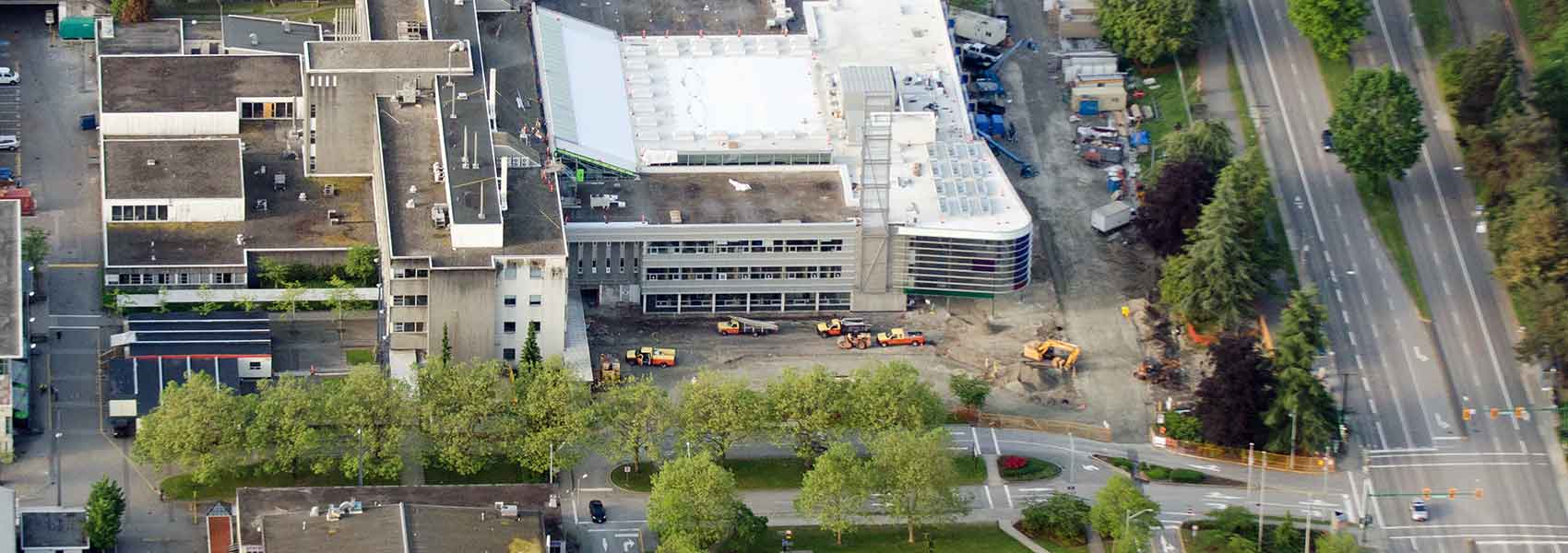
| 2004 | Number of students is now more than 48,000. Our polytechnic status is enshrined in legislation. |
| 2005 | Research Services Office opens to support applied research |
| 2007 |
We open our new, state-of-the-art 285,000-square-foot Aerospace Technology Campus in Richmond, near the South Terminal for the Vancouver International Airport. Our international partnerships span training, education and research initiatives in South America, Central America, Southeast Asia and Eastern Europe. Our total alumni has grown to more than 120,000. |
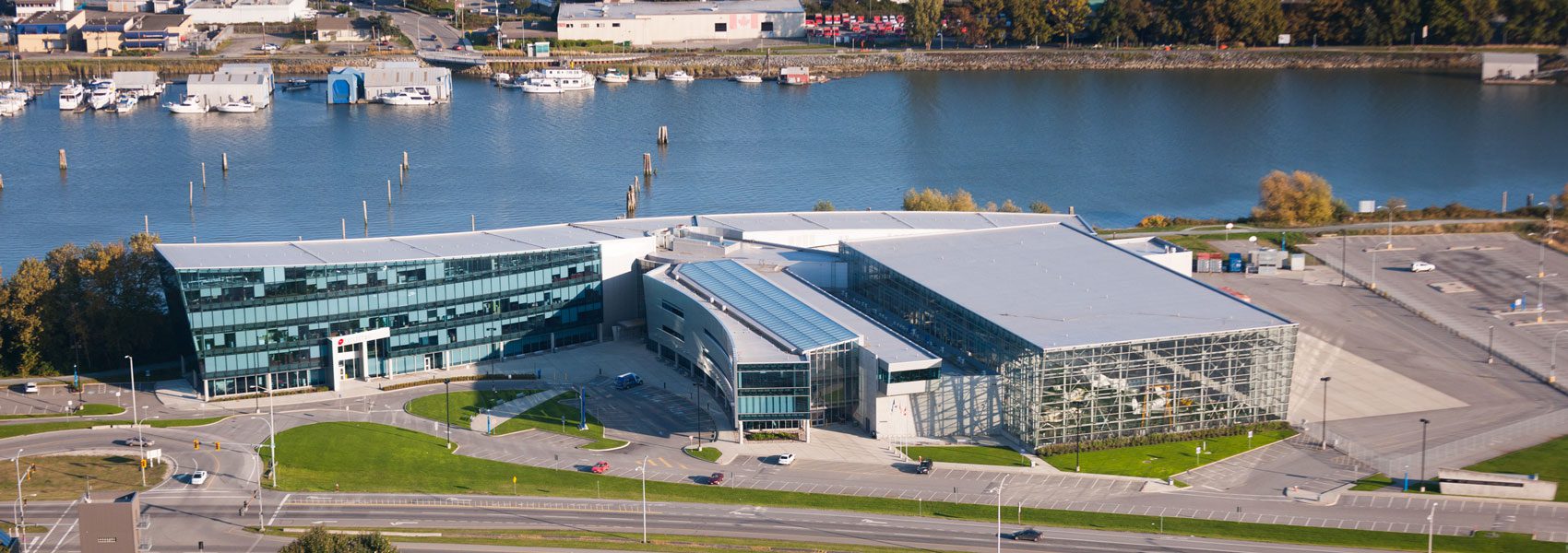
| 2011 | Our Burnaby campus opens the Indigenous Gathering Place, offering cultural and educational activities for our growing number of Indigenous students. |
| 2014 | Our newest campus opens as Annacis Island. This 142,000-square-foot facility jointly hosts motive power programs offered by us and Vancouver Community College. |
| 2014/5 | We celebrate our 50th anniversary with a dedicated website and events. Indigenous Student Services honours the 2015 graduates with a Celebratory House Post. |
| 2019 | Groundbreaking for the new 106,000-square-foot Health Sciences Centre at the Burnaby campus. |
| 2021 |
We launched the first season of our Fireweed podcast. During a period of profound adjustment in the way people work, learn, and socialize, Fireweed is BCIT’s first-ever podcast series that shares stories about people who have persevered in the face of disruption and rewritten their story. Fireweed has since won multiple awards. |
| 2021 | The Industrial Network Cybersecurity Lab (INC Lab) opens its first-of-its-kind facility to the next generation of network security professionals. By working in teams, students learn and hone their skills to defend against cyberthreats to industrial, manufacturing, and critical infrastructure organizations. |
| 2022 | The BCIT Health Sciences Centre officially welcomes students in Fall 2022. Standing four-stories and 111,460 square-feet, the state-of-the-art facility gives students access to sophisticated simulation, modern classroom technology, and cutting-edge education practices. |
| 2023 |
We opened the BCIT Tech Collider at the Downton Campus – a multipurpose learning centre that connects students, industry, entrepreneurs to solve real-world problems. Made possible by a $9.85 million investment from the Province of BC, the Tech Collider features advanced audiovisual technologies, interactive multimedia screens, collaborative lab space, and expanded tech programming areas. (Photo) |
| 2023 |
Through a $5 million donation from the Beedie family, the new Beedie Plaza was unveiled at the Burnaby Campus. The Plaza covers an area of 4,000 square meters and features an Indigenous-designed walkway. It provides expansive outdoor space for students and marks an important milestone in making the campus more pedestrian friendly. (Photo) |
| 2023 |
Construction is underway on the 12-storey BCIT Tall Timber Student Housing building, a project that will more than double on-campus housing capacity to 800 student beds. Designed to reflect the diversity of Indigenous culture in the region, the building will be constructed using mass timber and include studio suites, private rooms with shared bathrooms and kitchens, and a collaboration space. |